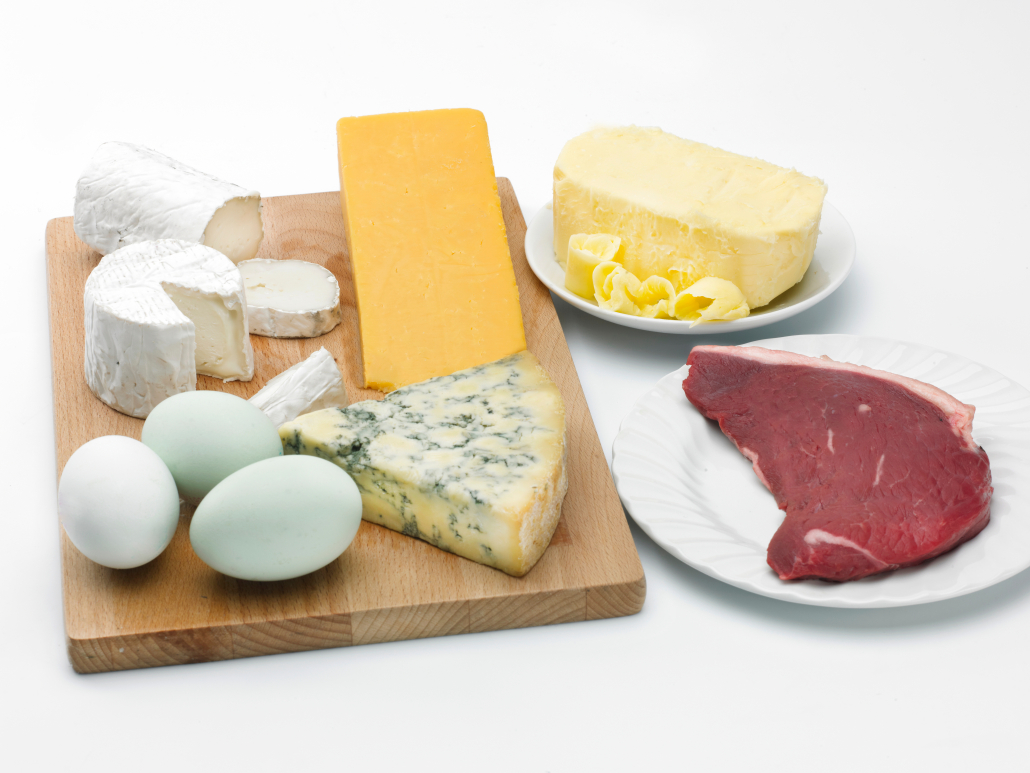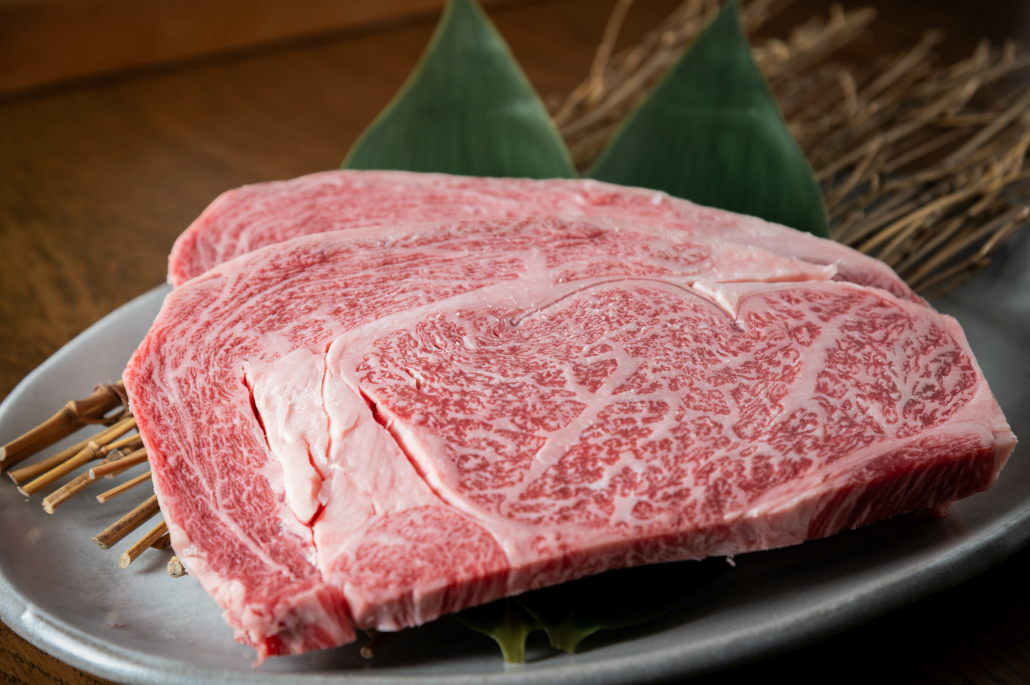How Much Beef Heart to Eat
We include products in articles we think are useful for our readers. If you buy products or services through links on our website, we may earn a small commission.
Beef Heart Nutrition and Benefits

Table of Contents
- What is Beef heart?
- Beef Heart Nutrition
- Beef Heart Health Benefits
- Organ Meat Quality
- How to Cook Beef Heart?
- Beef Heart Nutrition: The Takeaway
For most people, beef heart and its robust nutrition are relegated to the 'things lost to history' cabinet alongside 'traditional foods' and 'nose-to-tail eating.'
Yet new science is beginning to validate the nutritional wisdom of old–beef heart included. Beef heart is unique in the sense that it's both an organ meat and a muscle meat, with powerful benefits for both your body and your mind, whether you eat it fresh or in a convenient organ meat supplement.

Let's take a closer look at what makes beef heart's nutritional benefits so special.
What is Beef heart?
Beef heart is simply the prepared heart of a cow. Much to the surprise of modern eaters, beef heart is completely edible. When prepared right, it can even be pretty tasty, especially when compared to other organ meats.
Heart was a favorite food of many traditional cultures, including more than a few native American tribes. Modern nutritional analysis reveals the reason for beef heart's historic reverence: it is rich in B vitamins, coenzyme Q10, and many other bioavailable nutrients.
Beef Heart Nutrition
Beef heart nutrition entails robust levels of zinc, iron, selenium. It is also a great source of vitamin B2, vitamin B6, and vitamin B12.
In this section, we'll divide beef heart's nutrition highlights into two categories: macronutrients and micronutrients.
Beef Heart Macronutrients
| 3 ounces beef heart (85g) | |
| Total calories | 140.3 |
| Total fat | 4 grams |
| Monounsaturated fat | 0.9 grams |
| Polyunsaturated fat | 0.8 grams |
| Trans fat | 0.1 grams |
| Cholesterol | 180.2 milligrams |
| Sodium | 50.2 milligrams |
| Potassium | 186.2 milligrams |
| Carbohydrates | 0.1 grams |
| Net Carbs | 0.1 grams |
| Sugar | 0 grams |
| Protein | 24.2 grams |
Protein
Beef heart is a complete protein: it contains all 9 essential amino acids. This balanced amino acid profile makes beef heart a truly satiating food.
3 ounces of beef heart contains 24.2 grams of protein, which is more than enough to ensure muscle synthesis and brain health.
Carbohydrates
Beef heart contains only trace amounts of carbohydrates. A 3-ounce serving contains only 0.1 grams of carbs. In other words, heart is a perfect addition to your keto or carnivore diet.
Fat
Beef heart is lower in fat than many other cuts of meat. This isn't necessarily a good thing, as fat is an essential nutrient for most people, but for people who have difficulty digesting fat, heart may be in your stars. The fat it does have is comprised of saturated fatty acids, mono- and polyunsaturated fatty acids, and naturally occurring trans fats.
Beef Heart Micronutrients
| Nutrient | 3 ounces beef heart (85g) | %RDV |
| Iron | 5.4 milligrams | 68% |
| Magnesium | 17.8 milligrams | 6% |
| Phosphorus | 215 milligrams | 22% |
| Zinc | 2.4 milligrams | 17% |
| Copper | 0.5 milligrams | 24% |
| Selenium | 33 micrograms | 48% |
| Thiamine | 0.1 milligrams | 6% |
| Riboflavin (B2) | 1 milligram | 61% |
| Niacin | 5.7 milligrams | 29% |
| Folate | 4.3 micrograms | 2% |
| Choline | 194.5 milligrams | 36% |
| Vitamin B6 | 0.2 milligrams | 17% |
| Vitamin B12 | 9.2 micrograms | 383% |
B12
3 ounces of beef heart contains a whopping 383% of your recommended daily value of vitamin B12. That's almost four times more than your body needs to get by. (Excess B-12 simply gets excreted through the urine, so there's no reason to avoid it.)
In fact, most people find extra vitamin B12 intake highly energizing. It contributes to mental health, immune function, and normal cell division.
B2 (Riboflavin)
3 ounces of beef heart contains 61% of your recommended daily value for vitamin B2.
This B vitamin contributes to energy generation, healthy vision, and proper cell division. Like B12, it can be used to combat lethargy and fatigue.
Selenium
A small serving of beef heart contains nearly half your selenium RDA. Selenium is essential for thyroid function and immune function.
Many of this mineral's other benefits are generalized enough to 'trickle down' into other areas. For example, selenium plays an important role in repairing damaged DNA. Ensuring adequate selenium intake might help you avoid cancer and live up to your genetic potential.
Coenzyme Q10
Coenzyme Q10 (CoQ10 for short) is an interesting antioxidant also found in large quantities in beef heart. It has antioxidant, anti-aging, antistress effects. (Dr. Kiltz also recommends coenzyme Q10 to women struggling with their fertility.)
Rare peptides
Beef heart is rich in newly-discovered and yet-to-be-discovered peptides, too. Foremost among these special proteins is dwarf open reading frame peptide , or DWORF. DWORF may improve your heart's overall function and contraction strength.
Beef Heart Health Benefits
Modern nutritional research is finding that nature offers a simplified and holistic solution to nutrition: like supports like.
In other words, the nutrients in any given animal organ support the health of the same organ within the human body. Consuming beef heart is an excellent strategy if you're trying to support your own heart health.
Beef heart also has energizing, cardioprotective, mood-boosting, and immunoprotective properties. Here's a closer look at these benefits.
Natural Energy
Have you ever taken a vitamin B12 supplement? The energy rush is pretty incredible.
Beef heart provides the same type of energization — in a much more holistic format. The spectrum of B vitamins found in beef heart can help your body turn food into usable energy. B vitamins may also help you improve your body composition by supporting fat burning. And the coenzyme Q10 mentioned earlier can also help improve energy levels.
Cardiovascular health
The B vitamins found in beef heart also have a cardioprotective effect, meaning they may protect against heart disease. B vitamin intake is associated with healthy blood pressure and cholesterol levels, both of which benefit heart health in the long run.
Beef heart's iron content is yet another thing that makes it cardioprotective. Iron helps deliver oxygen to your tissues; if you're low in iron, you'll probably feel sluggish and tired all the time. Just three ounces of beef heart contains over two-thirds of your daily iron requirement.
Mood-boosting
B vitamins like B12 and folate are known for their ability to boost your outlook and mood. These vitamins are involved in enzymatic reactions that keep your brain and heart clear of homocysteine, a potentially harmful byproduct of protein metabolism.
Studies show that up to 30% of people with depression have overly high homocysteine levels — so upping your B vitamin intake may be a way to reduce depression's root causes.
Immunoprotective
The topic of immune health has been at the forefront of public awareness over the past couple of years, and rightfully so.
Immune health is yet another area where beef heart shines: it's rich in immune-boosting micronutrients like zinc. Zinc has a wide variety of antiviral, immunoprotective properties:
- Promotes the development of immune cells
- Influences cellular behavior to destroy damaged cells
- Protects the respiratory tract's natural barriers
Organ Meat Quality
Quality is everything when it comes to organ meats. Animals that were stressed or poorly treated during their lives may have calcified deposits around their organs. While not much research has been done in this area, it's possible that the heart of a stressed animal is less nutritious than the heart of a happy one.
Research in worms has found that the information present in stressed polyamine proteins can be transferred through ingestion from one creature to the next. If this concept carries over to cows and humans, then eating the organs of highly stressed animals might not be the best choice.
Try to source all your animal products from organic, pasture-raised beef to avoid these potential problems. Even if the conventionally-raised animals don't convey stress, pasture-raised cows are verifiably higher in healthy fats and important micronutrients.
When consuming beef heart in supplement form, select organ meat supplements from grass-fed pasture-raised New Zealand beef.

How to Cook Beef Heart?
Just a little bit of preparatory work transforms beef heart from chewy to truly delicious. Here's a simple organ meat recipe to help you enjoy beef heart.
Simple beef heart recipe
Prep time: 10 minutes
Marinating time: 12 hours
Cook time: 15 minutes
- Thoroughly rinse the beef heart under cold water, then pat it dry
- Cut the beef heart open, removing any visible strings or blood vessels
- Place the heart in balsamic vinegar to marinate overnight
- Once marinated, pat the heart dry again. Sprinkle with salt and any other seasonings
- If the heart is too big for your pan, cut it in half
- Melt some butter, lard, or tallow into your pan and set on high heat
- Grill the heart for 5-6 minutes per side. Don't flip it until a nice crust forms
- Place the heart on a plate, then cover with another plate for 10-15 minutes
- Cut against the grain in thin slices, then serve
When prepared right, beef heart is surprisingly tasty — it's one of the most 'regular' tasting organ meats, in fact.
Beef Heart Nutrition: The Takeaway
If you haven't tried beef heart yet…what are you waiting for?
Here's a recap of beef heart nutrition highlights:
- Contains coenzyme Q10 and rare heart-healthy enzymes
- Rich in zinc, iron, selenium, vitamin B2, and vitamin B6
- Very rich in vitamin B12
And here's a recap of its health benefits:
- Energizing
- Cardioprotective
- Mood-boosting
- Immunoprotective
- Pro-fertility
If you'd like to have higher energy levels, a healthier heart, and better brain and immune function, don't neglect beef heart . It's a vital — and surprisingly tasty — part of any keto or carnivore diet.
Article Sources
blakemorecomfordery.blogspot.com
Source: https://www.doctorkiltz.com/beef-heart/




0 Response to "How Much Beef Heart to Eat"
Post a Comment